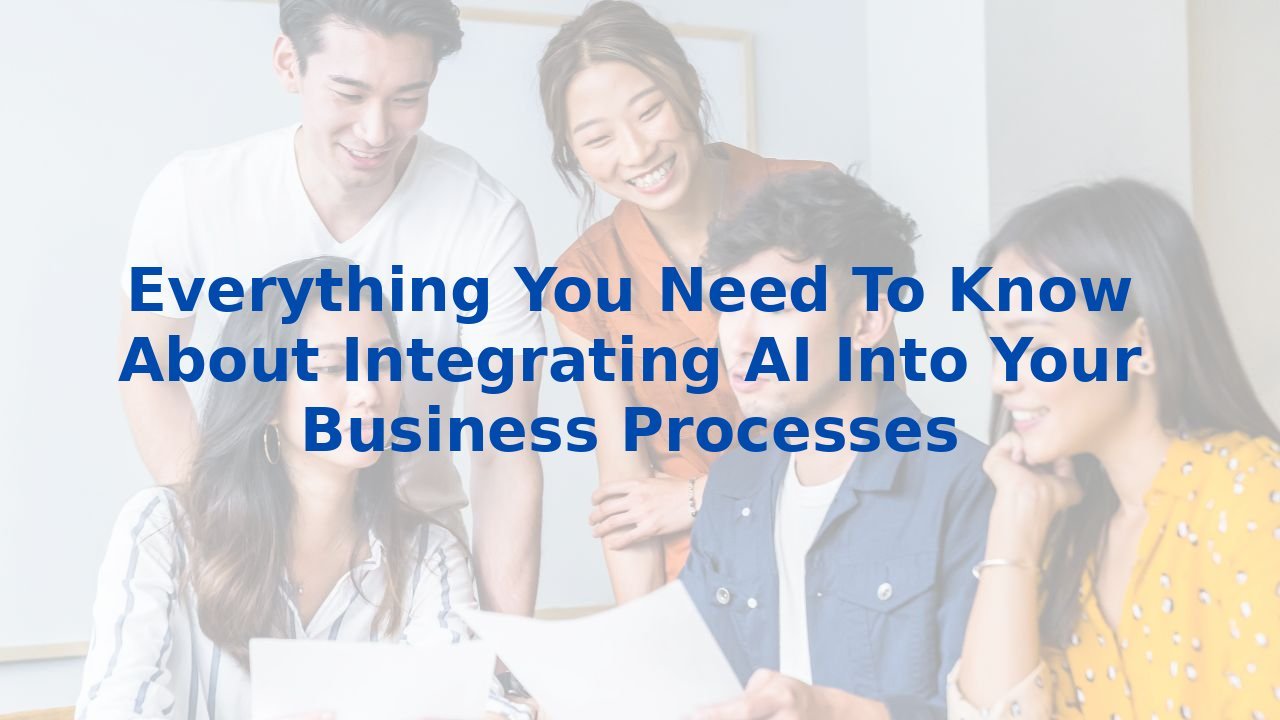Everything You Need to Know About Integrating AI into Your Business Processes
Everything You Need to Know About Integrating AI into Your Business Processes
In an age where efficiency and effectiveness define success in business, artificial intelligence (AI) emerges as a transformative force. Not merely a buzzword, AI is reshaping how organizations operate, enriching various business processes that drive productivity and performance. Let’s dive into the critical areas where AI can make a profound impact, exploring the advantages of this integration along the way.
1. Process Discovery and Mapping
The initial step toward optimizing business processes is uncovering hidden inefficiencies. Here, AI plays a pivotal role through Process Discovery. Utilizing AI-driven technologies like process mining and natural language processing, businesses can analyze operational data to identify bottlenecks or redundancies. Once these areas are recognized, Process Mapping takes over. AI-generated process maps provide a visual representation of workflows and help maintain up-to-date documentation, keeping all stakeholders aligned with the current operational framework.
2. Process Automation
Imagine transforming mundane, repetitive tasks into seamless automation. AI excels in Process Automation, particularly through the implementation of robotic process automation (RPA). Tasks that once required human labor—such as data entry or routine customer service inquiries—can now be performed around the clock with exceptional precision. By automating these processes, businesses not only boost efficiency but also empower their employees to focus on strategic, value-added activities.
3. Process Management and Improvement
AI's continuous monitoring capabilities redefine Process Management. With the ability to assess historical data, AI alerts management to emerging issues, allowing for timely resolutions. This proactive approach shields organizations from operational disruptions, while data-driven insights enhance decision-making. Through predictive modeling and root cause analysis, businesses can achieve sustainable improvements, keeping them ahead of the curve.
4. Enhancing Customer Service
Customer experience is paramount in today’s competitive landscape, and AI is at the forefront of this transformation. By leveraging chatbots and voice assistants, businesses can provide not just reactive but also proactive customer service. These tools can handle inquiries efficiently while analyzing feedback to predict customer behavior. Consequently, this not only elevates the customer experience but also alleviates the pressures faced by human representatives, allowing them to address complex issues more effectively.
5. Improving Product Development
Generative design is revolutionizing product development. Utilizing AI, organizations can explore multiple design possibilities based on input specifications. This capability not only saves time and resources by eliminating the need for extensive prototyping but also accelerates the overall development process. Rapid iterations mean quicker market launches and a heightened ability to meet customer demands.
6. Automating Content Generation
The realm of content creation is also experiencing profound changes, thanks to AI. Organizations can now employ AI tools to produce high-quality, engaging content—from product descriptions to analytical articles—at an unprecedented pace. This automation ensures a consistent output without the need for heavy manual effort, allowing teams to focus on higher-level creative processes.
7. Optimizing Supply Chains
AI's prowess extends to supply chain management, as it excels at real-time data analysis. By identifying anomalies—such as sudden spikes in product demand—AI enables swift action to maintain supply chain efficiency. Picture a retail outlet being alerted about potential shortages; this kind of timely intervention ensures that products remain available, aligning business output with consumer needs seamlessly.
Benefits of AI in Business Processes
The advantages of integrating AI into business processes are multifaceted:
- Improved Efficiency: Automation minimizes errors and reduces the need for manual intervention.
- Enhanced Decision Making: Predictive analytics and real-time insights empower organizations to make informed choices.
- Increased Productivity: Routine task automation frees personnel for strategic endeavors.
- Better Customer Experience: AI-driven personalization enhances the overall service.
- Reduced Costs: Automation cuts labor expenses, creating substantial savings.
The Importance of Employee Training
However, while the technical prowess of AI is undeniable, human expertise remains crucial. Investing in employee training is essential for maximizing AI's impact within an organization. Here's why:
- Understanding AI Tools: Employees need to learn how to leverage AI tools effectively.
- Adapting to Change: Technological evolution mandates a workforce willing to embrace new skills.
- Collaboration with AI: Ensuring that employees can work alongside AI systems enhances operational synergies.
In summary, AI’s integration into business processes is not just a future vision—it's a present reality. From enhancing process discovery to refining customer service, the potential for efficiency and productivity improvements is vast. Yet, to truly harness these capabilities, organizations must invest in their most valuable asset: their people. By prioritizing employee training, companies can unlock the full spectrum of benefits that AI has to offer and remain competitive in a rapidly evolving landscape.



